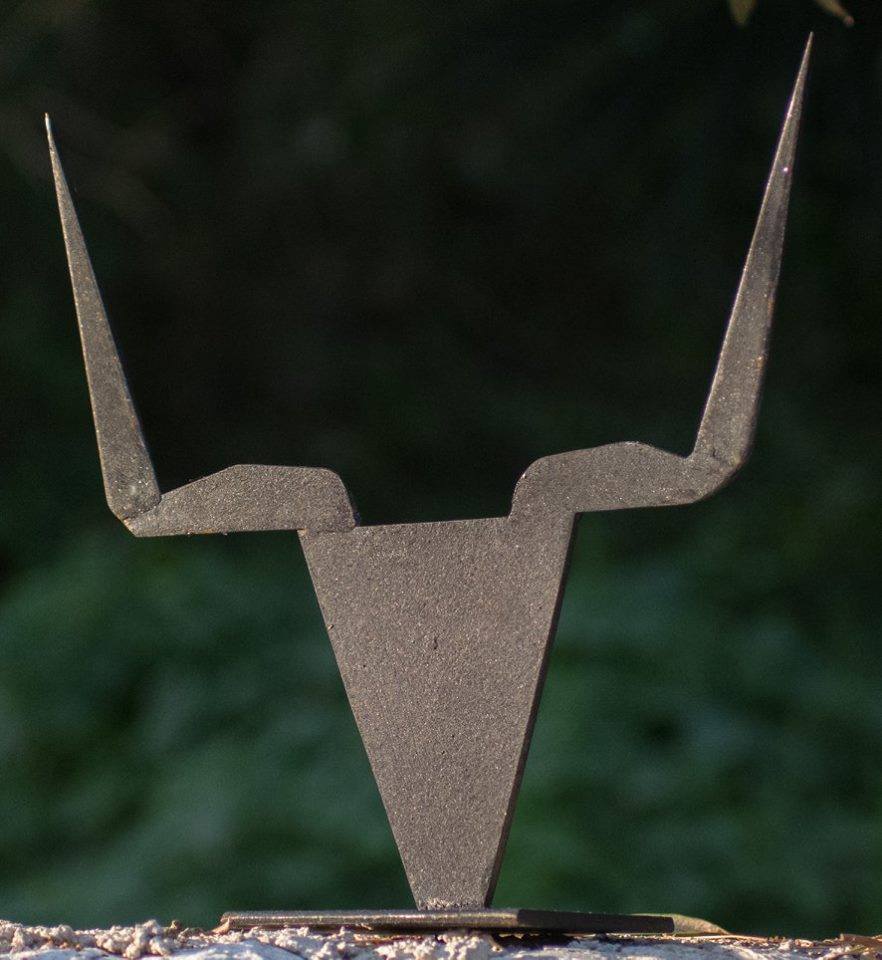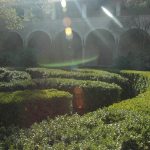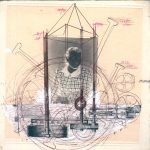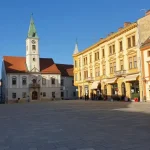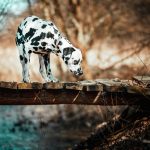A guest blog from Dagmar Meneghello
Art Palmižana Summer 2016
Alana Kajfež and Vudrag V. Nikola
MENEGHELLO PALMIŽANA ESTATE
OPENING: 27 JUNE 2016
Dedicated to Najaq, the last Sumatran extinct rhinoceros.
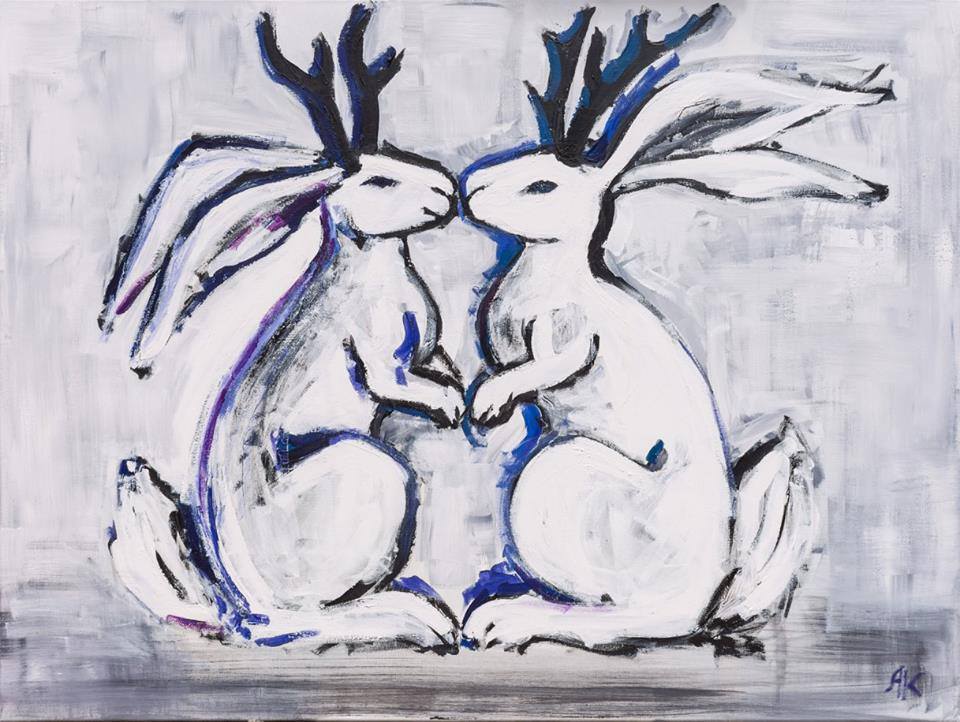
Alana Kajfež and Nikola Vudrag use the material to create mainly mythological, as well as endangered, animals with horns as a statement against human cruelty and barbarity.
With their exhibition of sculptures in the garden and on the terrace of the Meneghello estate, Alana Kajfež and Nikola Vudrag draw attention to the issue of horns which appear in and, sadly, disappear from the natural world.
Alana Kajfež and her Rabbits flirt with the Western, American culture, in the form of the widely known horned rabbit myth – the jackalope. The story of jackalopes was made up by the Douglas brothers from the USA, who made a living in the 1930s as rabbit hunters and sold them across local shops and hotels. Although there are people who allegedly saw a jackalope, scientists claim that these were most probably rabbits infected with papilloma virus which caused large tumours on the rabbit’s head that might appear as horns. With a skilful arrangement and relationship between the sculptures, Alana Kajfež is telling a more intimate tale: in such a set-up and display they speak of mutual preservation, of a group sticking together, especially today, when technology provides the man with new ways and tools for poaching. Alana Kajfež and Nikola Vudrag create mostly mythological, but also endangered animals with horns as a statement against human cruelty and barbarity.
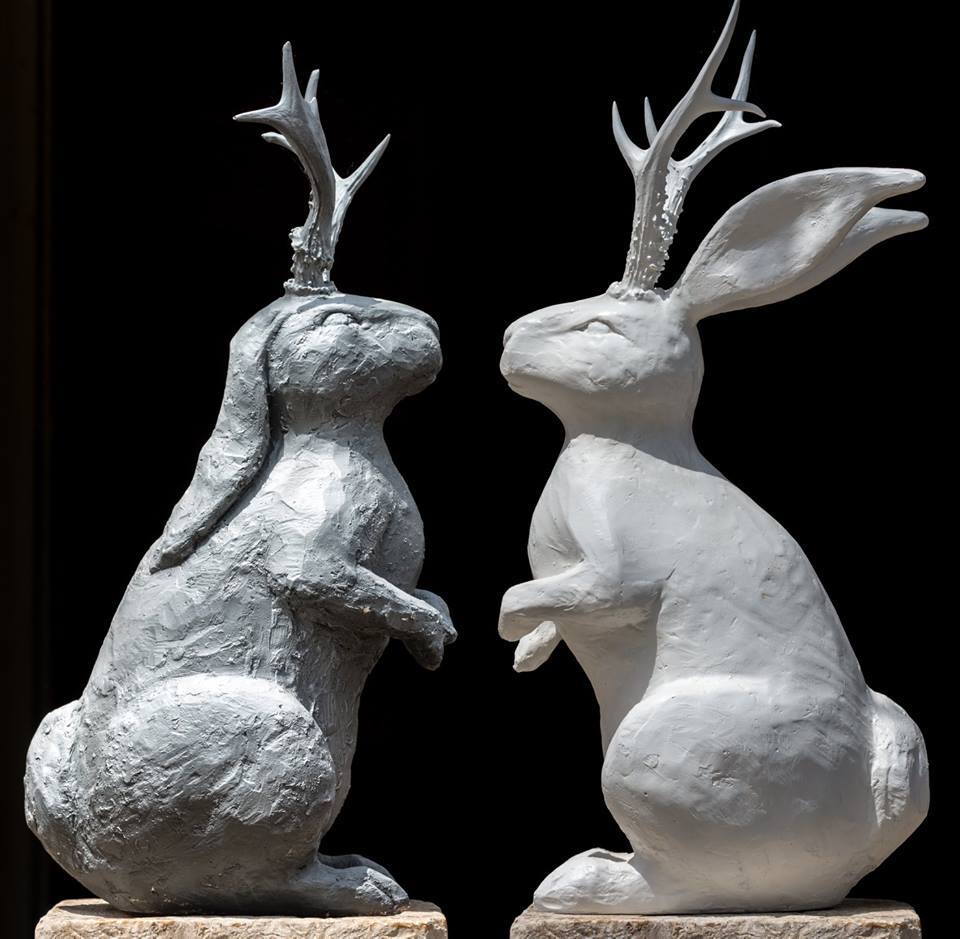
Unlike Alana’s intimate, gentle approach, Nikola Vudrag uses raw iron plates, two-dimensionally welded together in the outlines of the most known Asian, American, European and African animals with horns, only with a touch of the third dimension in polished horns, processed so that they allow for a slow and limited corrosion. The small amounts of corrosion, appearing only on the horns, give a visible expression of pain, suffering, decay – the corrosion which (to a certain extent) for iron means a slow death of the very material, just like the death of these animals comes by human greed.
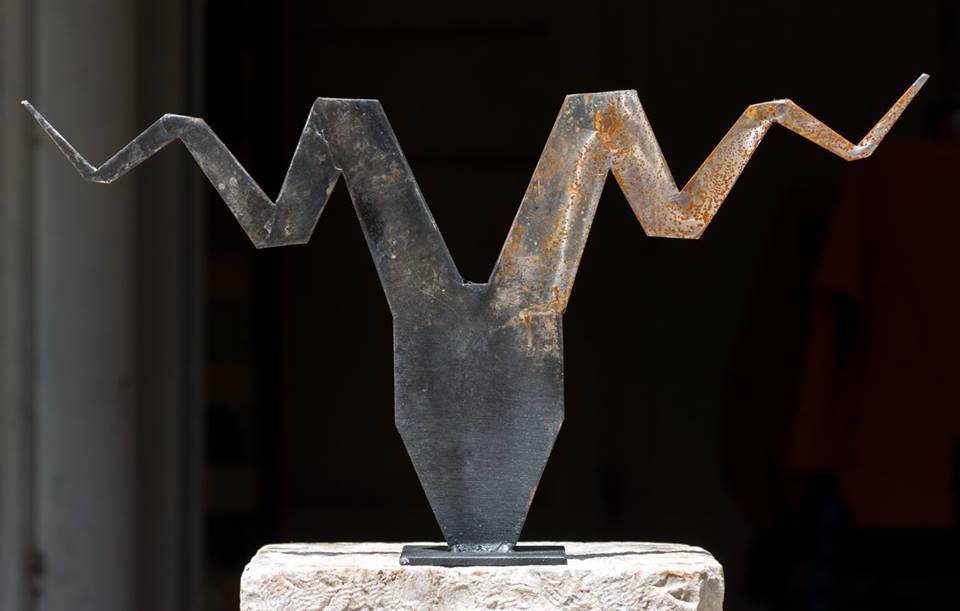
Nikola Vudrag’s series of ‘iron horns’ was also inspired by the recent news of the death of the last Sumatran rhinoceros, seen for the first time after 40 years in Borneo. It died of infection caused by attempted poaching, which made it a species extinct for all times. Instigated by this fact, Vudrag uses iron as the material to underline the strength, steadfastness and magnificence of these animals. At the same time, he allows for corrosion as a red flag, a warning about the disappearance of these glorious creatures by way of human greed and neglect.
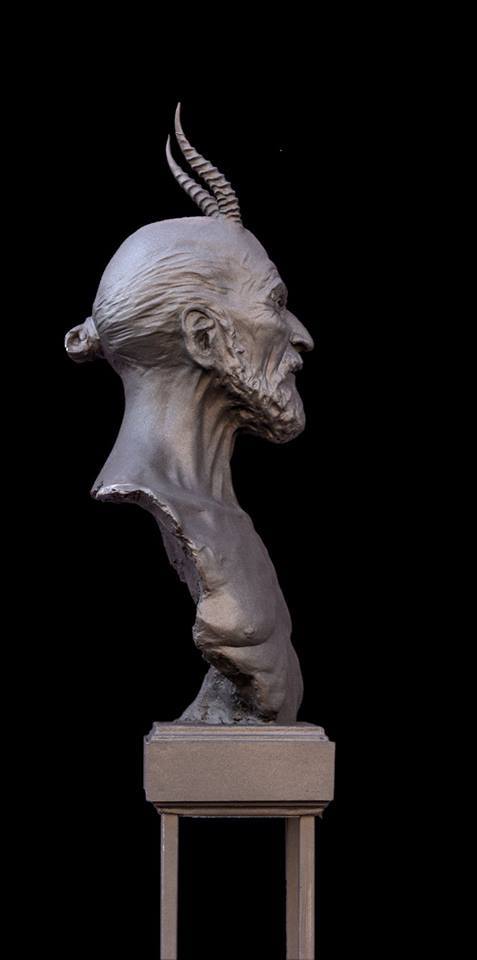
“Art has great power,” say the artists, advocating the idea that modelled sculptures of animals and their horns can be treated as exhibition pieces, unlike the real ones which belong to nature, where no one has the right to jeopardise them or their well-being.
The exhibition of sculptures by Alana Kajfež and Nikola Vudrag at Palmižana is dedicated to Najaq, the last Sumatran extinct rhinoceros. It is also a plea and a warning to everyone that reality is implacable – the list of extinct animals is growing rapidly.
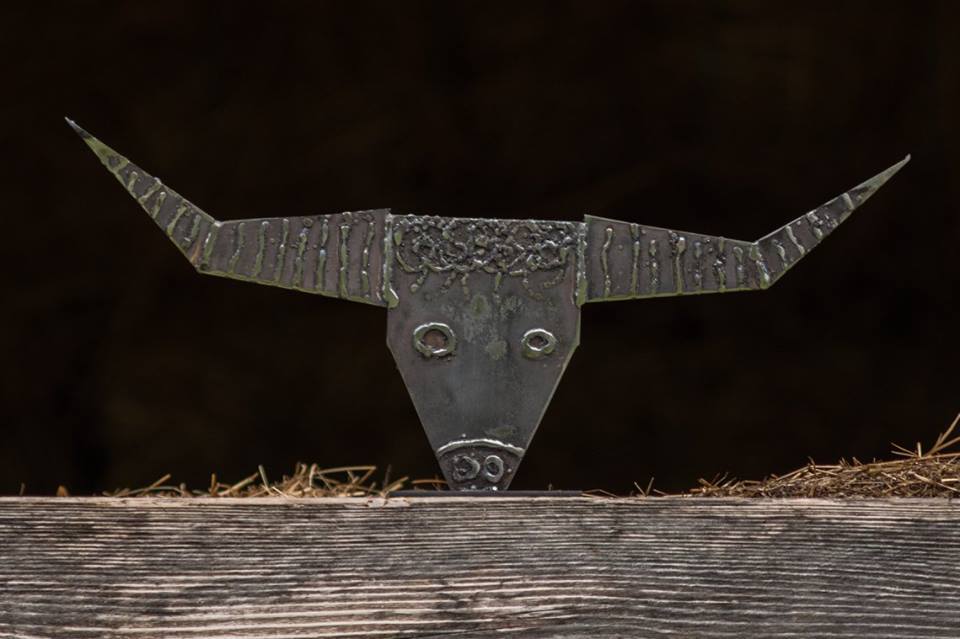
Alana Kajfež was born in Zagreb in 1990. After elementary school, she attended the School of Applied Arts, followed by the Academy of Fine Arts in Zagreb, graduating in 2014 under professor Peruško Bogdanić.
Nikola Vudrag was born in Varaždin in 1989. After elementary school, he attended the School of Design, Textile and Clothing with the Varaždin Second Gymnasium. The same year he enrolled in the Academy of Applied Arts (Department of Sculpture Teaching), but switches to the Zagreb Academy of Fine Arts, Department of Sculpture, specialising in small sculptures and medals. Since 2009 he has been a member of Varaždin Art Association. He lives and studies in Zagreb.
